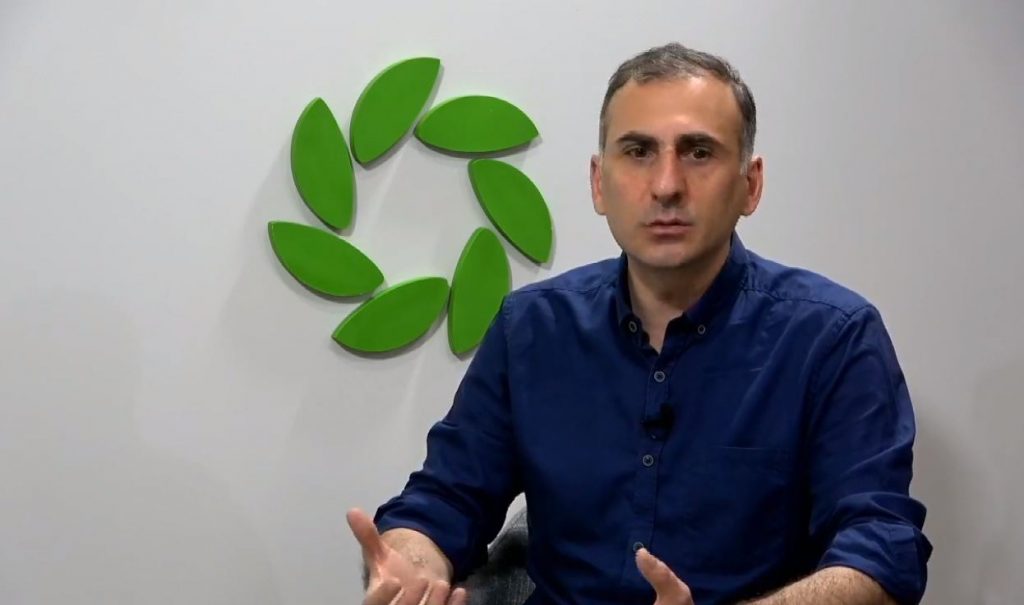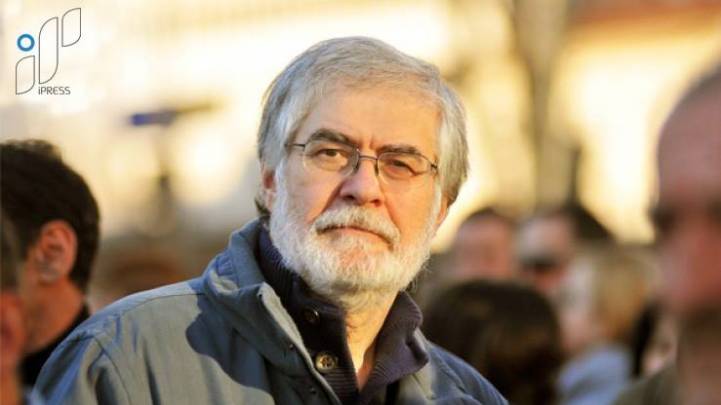Op-ed: can the Georgian opposition and gov't overcome the political standoff?
So far the negotiations between the Georgian authorities and the opposition concerning the October 31 elections have resulted in little progress.
Georgian expert Gia Nodia believes that the opposition made a mistake by declaring a boycott of the new parliament, but that the authorities still have the opportunity to resolve the political crisis. His comments below.
According to the results of the parliamentary elections on October 31, 2020, the ruling party received 48 percent of the votes under the proportional system, and also won both rounds in all 30 majoritarian districts. As a result, the Georgian Dream won 90 seats in the 150-seat parliament.
The rest of the seats are distributed among eight opposition parties (the passing threshold was set at 1 percent of the vote). However, all opposition forces in Georgia, including these eight parties, have unanimously called the elections rigged, declared a boycott of the newly elected parliament and are demanding new elections.
On December 9, the fifth round of negotiations between the opposition and the authorities is expected. On the eve of this meeting, Aleko Elisashvili, leader of the opposition Citizens Party (1.33 percent of the vote), announced it may take up its mandates and begin working in parliament.

Elisashvili said that the condition for this is reaching an agreement with the authorities on reform of the electoral system.
Other opposition leaders condemned his statement and said that ‘the appearance of a figure like Elisashvili in parliament will only underline the one-party system.’
At the same time, there is only one day left before the start of the work of the newly elected parliament – the first session will open at 12 noon on December 11.
In order for the session to be declared valid, a quorum of 76 MPs is required, and with 90 seats in parliament, the ruling party can ensure this even in the absence of opposition.
- Georgian opposition to request termination of parliamentary mandates on legislature’s first day at work
- Georgia: can a single-party parliament function?
The first step in the new parliament will be to dissolve the government, which will continue to work on an interim basis until a new prime minister is appointed.
After the parliament’s approval of his or her candidacy, the new prime minister will present the government and programme. Then discussions will begin in committees and factions.
If the opposition continues to insist on a boycott, these processes, most important for the country, will likely take place without its participation.
After the previous round of negotiations, former speaker Irakli Kobakhidze reiterated that even if the opposition plans to refuse mandates, they will not be able to do this, since the decision on this issue is made by the parliament.
“There is a mechanism for combating sabotage, which is provided for by the constitution,” Kobakhidze said.
Commentary

Gia Nodia, Doctor of Political Science, professor at Ilia University in Tbilisi, told JAMnews that the political crisis has entered a chronic stage, since the authorities have no reason to give in, and the opposition has no power to force them to do so.
“At this stage, in my opinion, the opposition is suffering much more.
The government remains a government – it works, it has functions to be performed, problems to be solved.
There are also no technical problems with the parliament, so the government can continue to work as usual.
And the inconvenient situation of a one-party parliament functioning in the country does not greatly affect the ruling party, since the government reminds the public again and again that this is the fault of the opposition.
The opposition is now in a difficult situation.
On the one hand, they cannot simply retreat, but must show the public that they have achieved something from the authorities.
On the other hand, the opposition now has virtually no place at all. They refused to take up their parliamentary mandates and did not receive much support in their street protests.
In fact, the opposition has become institutionally homeless.
Therefore, in my opinion, the decision of the opposition to boycott and not work in parliament was very hasty.
In this situation, it is difficult for the opposition to enlist the support of the international community. Yes, of course, there were serious violations in the elections. But they were not such that one could say that in reality the opposition won, not lost. And the international community sees this.
Representatives of democracies cannot easily make such a radical decision as refusing to participate in parliament.
In many countries where there is a hybrid regime, elections are not perfect, but the opposition still gets into parliament and continues to work there.
At this stage, dissatisfaction with the authorities in society is not yet strong enough for the state to be unable to cope with it. However, things can change.
The situation in the country as a whole is dire due to the pandemic. If the government is unable to cope with the pandemic crisis, it cannot be ruled out that the wave of protests will intensify.
The way out of the impasse now largely depends on the government. It must offer the opposition something so that it can agree and get into parliament.
To end this crisis, I would recommend that the government recognize that the elections were not democratic. It is necessary to create a basis for discussing the extent to which early parliamentary elections can be held.
But it looks like the government won’t do it.”



















